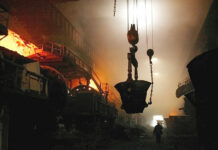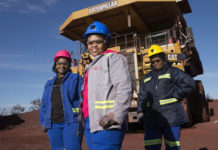
AS embarrassing as Sipho Pityana’s statements last week about President Jacob Zuma may have been to government officials participating in an investment roadshow, those assessing whether our democracy is still a place worth investment could only have been heartened.
Civil society and business has called time on the ethical malaise of the Zuma administration; no doubt stirred by the robustness of the South African judiciary, and the will of the people which voted the ANC off several metros in recent local elections.
He was “… a president who literally laughs off any suggestion that government be held to a higher standard – and, is, in fact, the sponsor-in-chief of corruption”.
This is what Sibanye Gold CEO, Neal Froneman, has described in the past as a “credible relationship” with government. It sits in stark contrast to the friendly relationship the mining sector appears to have craved with government until recently. This new outspokenness – which isn’t all negative criticism – proves why South Africa’s mining sector can warrant new investment.
The relationship between the government and the mining industry has been progressively wasting over the years; it’s not easy to put a pin in the event that defined how things would unfold. Certain historical events, however, do provide some insight.
Brian Gilbertson, the former CEO of BHP Billiton, recalled how the proposed UK listing of Billiton – which housed assets that comprised the Afrikaner bastion of Gencor – posed a PR challenge, especially coming so soon after democracy in 1995.
However, the attempt to win the blessing of then president, the late Nelson Mandela, and his deputy, Thabo Mbeki, was a relatively painless one, said Gilbertson. “Today the government response would be a Section 54 notice,” he said, dryly.
But as Business Leadership chairman, Bobby Godsell, pointed out at the Joburg Indaba conference, South Africans have been here before, where the dereliction among leadership was so palpable. “There is an analogy because in the late Eighties and early Nineties we had no government,” he said.
“They [the National Party] knew their time was up; they were shedding their files. We have been here before. It is difficult to be a patriot.
“We shouldn’t say what a fine speech; we should say he [Pityana] has articulated one response, but we need to ask if there’s another one. We need to find government that can represent us,” he said.
Godsell then picked up the theme Froneman articulated in his conference opening address on October 1 in which he called on the mining sector to frame a proactive industry response, especially for government relations of the future.
But whilst Froneman focused on the industry’s part in unresolved legacies of apartheid, Godsell said it was worth acknowledging more recent mistakes; those of the last 20 years.
“Attempts to incorporate unions have not worked, the living out allowance has not worked,” said Godsell. “Phoney BEEs … ESOPS generally-speaking, haven’t worked,” he said. This is what former Exxaro CEO, Sipho Nkosi, was describing when he said at a recent breakfast assemblage of the industry: “Have we been entirely honest,” in respect of BEE.
“I question whether the industry has acted honestly. There have been R300bn [BEE] deals in last 12 years, but in terms of change in South Africa, you don’t find anything,” he said.
“That is a big cost to us as an industry. You said you did the big deals, but only ones making money from it is the lawyers and finance houses,” he added
In making this reckoning with the long and recent past, perhaps it may be possible to “shame our government into coming to the table,” as Godsell described it.











